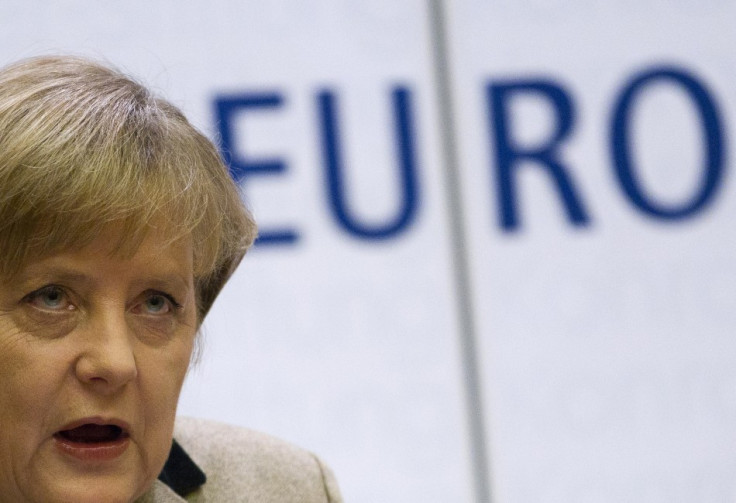Germany Sacrifices Itself to Save Euro Dream

Following the end of the Second World War, a wrecked and humbled Germany was a pariah state divided up by the conquering powers. It had no money, no power and no influence. Nearly 70 years on, it is now the key player at the heart of the continent and must decide whether to take on the role of Europe's saviour.
As a political and financial entity, Europe is on the brink of collapse. Unless it can find a way to avoid defaulting on its debts, the only solution that lies ahead is for the eurozone to become a tighter fiscal unit.
France had been leading the euro fightback by Germany's side. President Nicolas Sarkozy and Chancellor Angela Merkel met so regularly that the French media joked about how they saw more of each other than they did of their respective spouses.
That all changed in mid-January when S&P downgraded France's financial rating from AAA to AA+. Sarkozy has since left the stage to focus on his own country's economic woes and to begin his campaign for the presidential election in April. It is now up to his German counterpart to sort everything out.
At the World Economic Forum Davos last week, Merkel told delegates she "wanted more Europe and not less". On the same stage a few days later, the prime minister, David Cameron, said that although single currencies could work it was up to the stronger nations to pull back for them to be able to work.
He meant Germany. No one in the room could have imagined otherwise.
Would Merkel be prepared to relinquish her own country's competitive advantage? The answer appears to be yes.
Times' columnist David Wighton reported that a German executive and well-connected supporter of the Free Democratic Party said that Germany would help the competitiveness of troubled eurozone states by sacrificing some of its own.
"The German Chancellor and Mario Draghi, president of the ECB [European Central Bank], knew what they were doing but had to tread very carefully to maintain public support in Germany," he said.
The source told Wighton: "In the end, they will allow inflation to rise, easing debt burdens and boosting the competitiveness of peripheral eurozone members." Would the German people accept that? "They won't be asked," he added.
Bloomberg reported that inflation in four German states accelerated in January because of rising food and fuel costs.
Overall German inflation increased to 2.4 percent from 2.3 percent in that period, according to the median of 23 forecasts in a Bloomberg News survey of economists.
© Copyright IBTimes 2025. All rights reserved.





















